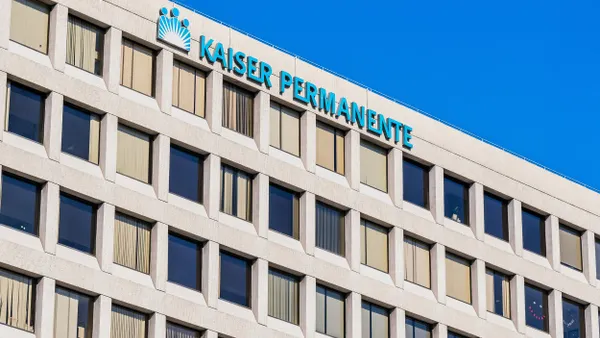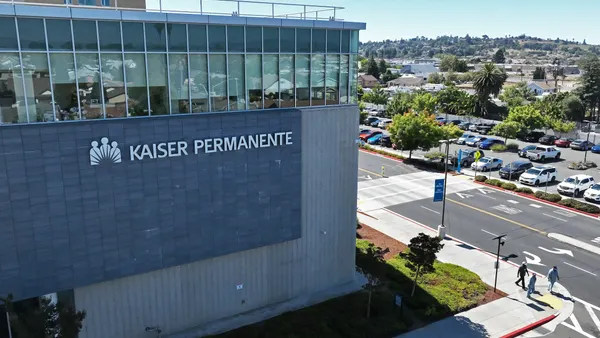Dive Brief:
- It is the longest living donor chain for transplants at a single institution. In an ongoing effort at the University of Alabama at Birmingham Hospital, 21 patients have gotten kidney transplants since the chain began with an altruistic gift in December. In order to get a kidney from a stranger, each recipient must have a family member or friend willing to donate a kidney to a stranger in their honor to keep the chain going.
- During the week of July 7, six more transplants are scheduled at UAB Hospital, which began kidney transplantation in 1968. It is one of the three largest kidney transplant programs in the U.S. Thus far, the transplant chain involves people from Alabama, Mississippi, Florida, Georgia, Tennessee, Louisiana, Texas, Illinois and New Jersey.
- Other programs offer living donor kidney transplantation, but require a completely compatible match. By contrast, UAB's program offers pretreatment to patients, allowing them to overcome blood group and/or other incompatible barriers; and it has a paired donation component.
Dive Insight:
Nationwide, more than 100,000 people are on the waiting list for a kidney transplant, including almost 4,000 people in Alabama. But there are only enough donor kidneys for 11,000 transplants annually; and more than 15% of people on the waiting list will die before they receive a transplant. Doctors said those people fortunate enough to get donations will have their new kidney work for an average of almost 15 years, with some lasting up to and beyond 30 years.
UAB officials cited the need for more national coordination to put a dent in the waiting list. Ironically, former HHS Secretary Donna Shalala tried to overcome turf wars and reshape the way in which organs in the U.S. are distributed for transplantation back in 1998. She said survival shouldn't be an accident of geography. But Shalala's effort was stymied by a private organ-procurement agency trying to save small transplant centers around the U.S. whose autonomy and income would be undermined by the plan. And it was further stymied by a lack of donors.
Sixteen years later, the nation's waiting list for organ transplantation remains long, and the good news story is about a donor chain helping 21 fortunate people. What about the thousands of other people still waiting for a chance?














